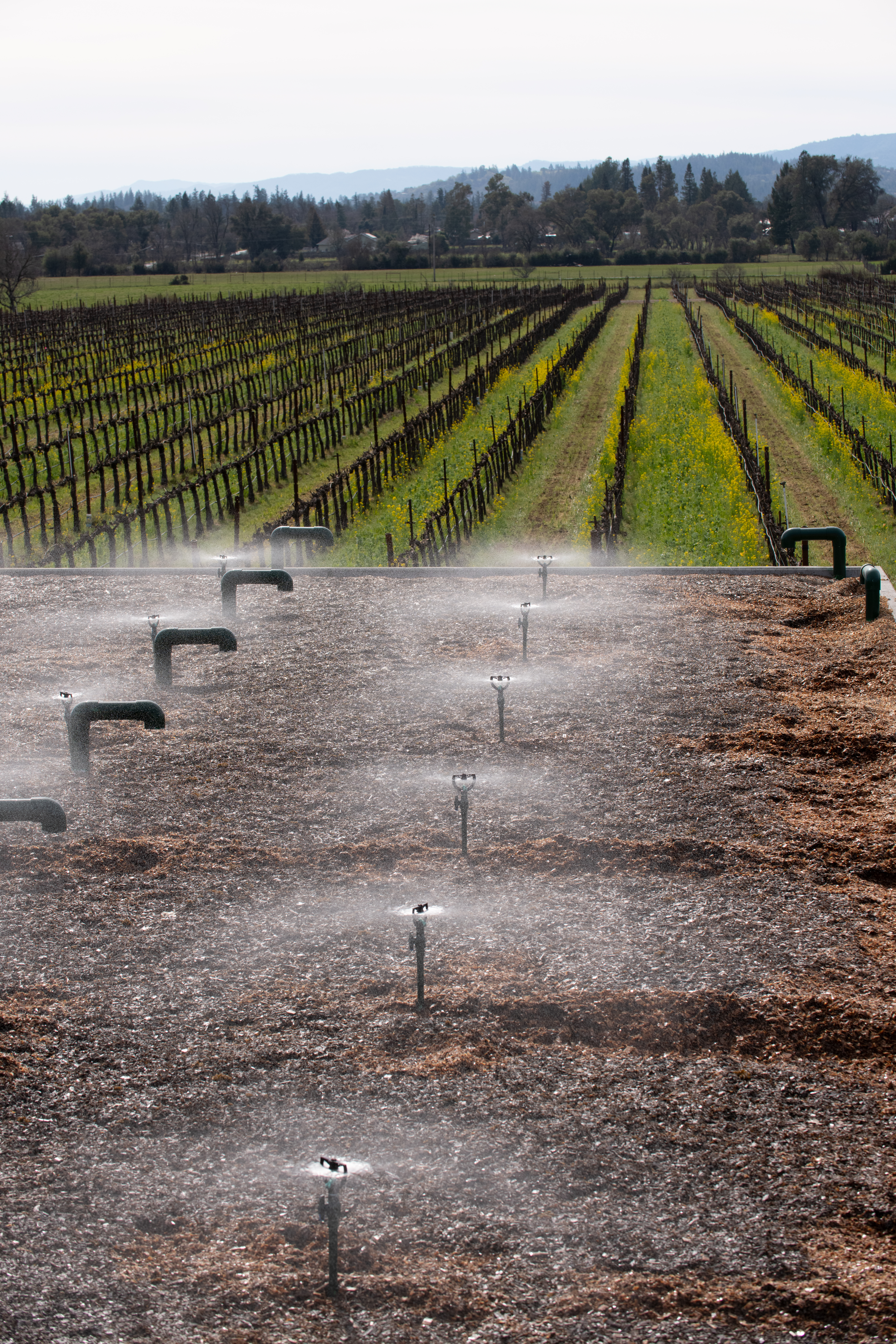Between drought, climate change, and disrupting natural water tables, finding an energy-efficient way to recycle water is vital to sustainability. Until recent alternatives entered the market, the number-one practice to treat process water has been by way of an aeration pond. These ponds take a lengthy amount of time to process (days to weeks), are loud, odorous, and require an exhaustive amount of energy. A Chilean wastewater company called BioFiltro patented a chemical-free solution to these issues. Several years ago winemaker Paul Frey stumbled into their presentation at a Unified wine show, cementing what would become a newfound partnership and a whole lot of earthworms.

